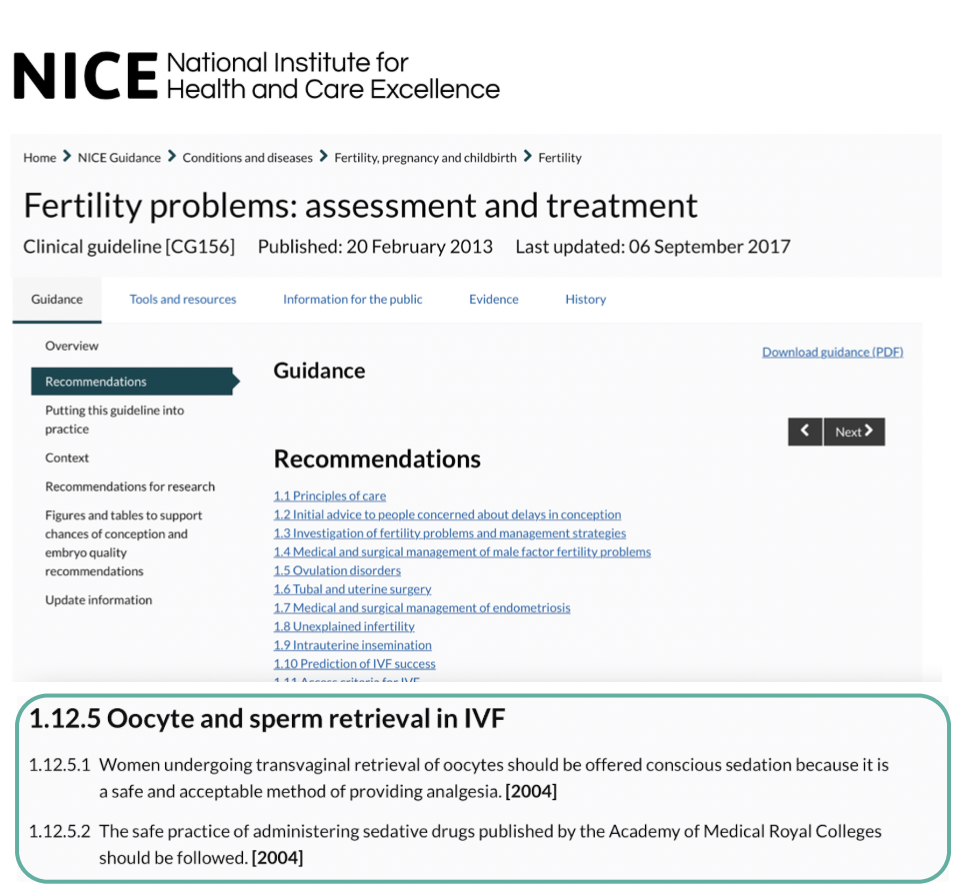Sedation for Reproductive Medicine Procedures

In reproductive medicine, sedation has been increasingly used for painful procedures, mainly, transvaginal recovery of oocytes from the ovary and when needed, surgical sperm retrieval may also be necessary. The primary goal is to provide safe and effective analgesia, allowing the patient to tolerate the procedure, allowing the surgeon optimal surgical conditions to collect the oocytes, and promoting speedy post-operative recovery. Sedation has been an increasingly popular approach to provide these optimal conditions.
What are the main recommendations and research on sedation for fertility procedures?
Research reinforced the increase use of sedation for reproductive medicine procedures:
“Intravenous sedation was the preferred method of sedation for oocyte collection, being used in 62.4% of units. General anaesthesia was the primary method in 24.6% of units.” Ephia Yasmin, Martin Dresner, Adam Balen (2004)
And NICE guidelines also recommend that sedation should be offered to patients undergoing oocyte retrieval:

How can professional in reproductive medicine introduce safe sedation practices?
SedateUK has presented a study at the British Fertility Society in January 2022, on developing the role of 140 non-anaesthetist sedationists, of which 29% were working in reproductive medicine. Nurses and doctors attending the course were looking to develop skills in administration of sedation, airway assessment, capnography, and management of possible complications. Here’s the main findings”
- 71% of attendees said their goals had been exceeded by attending the course
- 97 % of attendees felt very or extremely confident in administering safe sedation
- 98% of attendees felt very of extremely confident in their ability to manage complications
If you want to learn more about sedation in reproductive medicine, listen to the webinar where we hear from nurse manager Diana Baranowski, about her experience of training nurses and implementing the role of nurse sedationist at Care Fertility.
